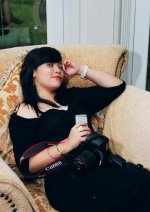casualuser
Member
What experience with a flash do you have on an M6 TTL ? Can you control the output of available flashes (bounce or not) well enough to keep from over powering the subject? My FM3A does a nice job of providing info to a Nikon 22S ttl flash to keep things in line. What is the closest rangefinder equivalent?
(this may have been in an earlier psot but I keep hitting the "not making the 3 word limit" in the search function despite the number of words I type in)
Thanks
(this may have been in an earlier psot but I keep hitting the "not making the 3 word limit" in the search function despite the number of words I type in)
Thanks

